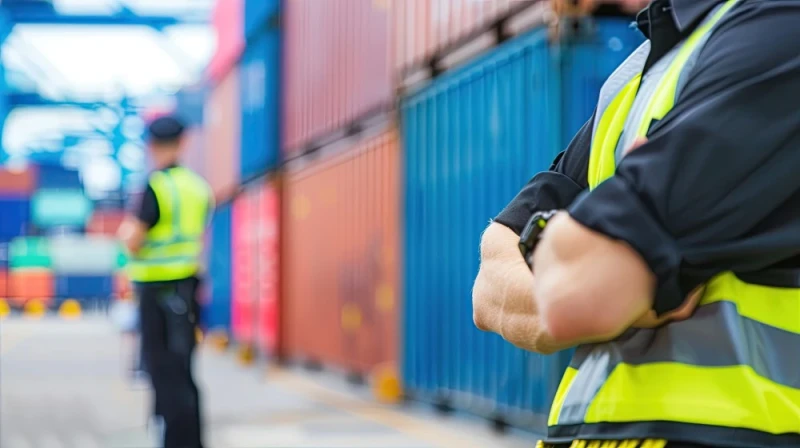The New EU Directive to Combat Greenwashing and Promote Sustainability
By Michela Mossali | 11 March 2024
minutes to read.

The European Union’s new Directive is the latest in a series of measures designed to ensure consumers have accurate and transparent information about the environmental impact of the goods they purchase.
This EU Directive will enforce stricter rules around product labeling and prohibit use of misleading environmental claims, often referred to as “greenwashing”. Businesses transacting in the EU will need to meet these regulations to achieve sustainability and ESG compliance, avoid penalties, and maintain a positive brand reputation in today’s increasingly sustainability-focused market.
With the Directive having been approved by the EU, organizations must now take action to ensure they comply. This article unpacks the requirements, risks, and resolutions.
What is greenwashing?
Greenwashing is the practice of exaggerating or misrepresenting a business’ environmental claims to paint themselves in a more positive light than their genuine efforts deserve. This has the effect of misleading consumers as to the business’ true environmental credentials, garnering them an unfair advantage over competitors, as well as masking any adverse environmental practices.
Recent studies reveal the scale of this activity. An EU commission report from 2020 found that 40% of green claims made by companies were “completely unsubstantiated”. Over half made environmental claims that were “vague, misleading or unfounded”.
In another study, nearly half of sustainability claims made online were judged to be false or deceptive.
What does the EU Directive say about product labelling and sustainability?
The new EU Directive focuses on the accuracy and transparency of product information. Product labels must include details around the origin of raw materials, production methods, and waste management practices. Only sustainability labels based on approved certification schemes or established by public authorities will be allowed.
The Directive also prohibits the use of generic environmental claims and other misleading product information. This includes using statements like “environmentally friendly”, “natural”, “biodegradable”, “climate neutral” or “eco” without substantiation.
Through these measures, the European Union aims to force businesses to genuinely engage in environmentally friendly practices, as well as arm consumers with reliable information on the environmental impact of the products they use.
The regulation reflects growing consumer interest in eco-friendly products and brands, and is intended to complement other legislation, including the Green Claims Directive and the Ecodesign for Sustainable Products Regulation, currently under review.

What are the risks to businesses?
Businesses that fail to comply with the EU Directive will face legal, financial, and reputational risks. These may include some or all of:
- Financial penalties – fines or legal action could be imposed, as well as greater ongoing scrutiny to assess potential future transgressions.
- Restrictions on trade – businesses found guilty could face limited or total loss of access to valuable EU markets.
- Erosion of brand equity – businesses labelled as “greenwashers” may suffer loss of consumer trust and degraded brand reputation.
- Adverse business performance – reduced sales, loss of market share and compromised growth opportunities may be incurred as a result of the impacts above.
Indications of likely penalties may be found in the Green Claims Directive, which specifies fines of at least 4% of revenue or exclusions of up to a year from public procurement processes for companies failing to verify claims with independent and scientific evidence.
The consequences of greenwashing are already visible in several high-profile, well-reported cases, including a major fashion retailer forced to suspend use of their product labelling tool over greenwashing claims and an airline sued over using greenwashing in their advertising.
How to comply with the EU Directive
To be compliant with the new EU Directive, businesses must prioritize accuracy in their product information and authenticity in their environmental messaging.
This requires a dedicated focus by leadership teams to incorporate compliance measures into supply chain management strategy, embed positive operational practices throughout the organization, and resource supporting initiatives appropriately.
Specific measures to improve compliance include:
- Independent verification of product details, including the origin of raw materials, to assure the market that the product is indeed what it claims to be.
- Greater transparency of supply chain production and handling, to ensure product integrity isn’t compromised or deliberately adulterated at any stage.
- Regular disclosure statements to partners, regulators, investors, and other stakeholders to address actions and outputs regarding sustainability performance.
Businesses must also review the messaging used in their advertising and promotional activities to avoid the use of any misleading wording, however inadvertent. To support this, it may be useful to refer to eight principles drafted by the Australian Competition and Consumer Commission (ACCC) as tactics to improve environmental messaging.

How origin tracing supports EU compliance
Accurate information on product provenance is central to the EU Directive’s new labelling requirements, and thus proving the origin of products and the raw materials used in their manufacture is essential for compliance.
Oritain’s innovative forensic science methodology verifies the origin of products as diverse as cotton and textiles, coffee, red meat, leather, timber, and more.
All natural products have an inherent chemical make-up which is determined by environmental and geographical factors and is thus unique to each origin. By extracting this chemical signature, Oritain can pinpoint product origin by country, region or even individual tracts of land in some cases.
Origin tracing with Oritain can support compliance by:
- Verifying the genuine origin of materials used, thereby maintaining accuracy of information on product labelling.
- Ensuring products aren’t made using materials associated with unethical practices or environmental abuses, such as forced labor, child labor or deforestation.
- Assuring customers, retailers and the wider market that they aren’t supporting unethical production or manufacturing practices.
- Providing forensic isotopic testing which is robust and reliable enough to be admissible in court if required.
Member states now have 24 months to introduce this Directive into national laws. Forward-looking organizations will use this lead time wisely to ensure their operations are compliant – and avoid a costly headache later.
To learn more about how Oritain's comprehensive platform helps organizations prove product origin and improve sustainability performance, contact us to speak with one of our team.
Disclaimer: The information provided in this document does not and is not intended to constitute legal advice. Instead, all information presented here is for general informational purposes only. Counsel should be consulted with respect to any particular legal situation.




